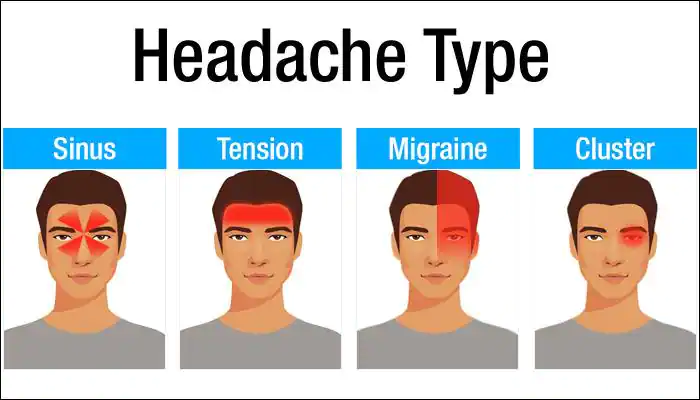There are millions of people suffering from headaches worldwide. They can have a wide range of causes and differ in intensity, duration, and location. Even though most headaches are not serious, they can still be extremely painful and incapacitating and, in some cases, may need to be treated medically. We'll look at the most typical headache causes in this article.

headaches with tension
The most prevalent type of headache is a tension headache, which is frequently brought on by stress, anxiety, and tension in the muscles of the neck and head. The forehead, temples, or back of the head may feel tight or pressured all the time during these headaches.
Migraines
A severe type of headache called a migraine can last for hours or even days. They frequently come with additional symptoms like sensitivity to light and sound, nausea, and vomiting. Although the precise cause of migraines is unknown, a combination of genetic, environmental, and lifestyle factors is thought to be responsible.
recurring headaches
Rare but extremely painful headaches, cluster headaches typically affect one side of the head. They frequently come with a runny noses, nasal congestion, and eye pain. Although the precise cause of cluster headaches is unknown, abnormalities in the hypothalamus, a region of the brain that controls the body's natural rhythms, are thought to be a contributing factor.
nasal headaches
Inflammation or congestion in the sinuses is the cause of sinus headaches. They frequently affect the front of the head and are accompanied by other symptoms like facial pressure and nasal congestion. Allergies or infections are frequent causes of sinus headaches.
persistent headaches
Overuse of painkillers is a cause of rebound headaches. Frequent use of painkillers can actually make headache worse, creating a vicious cycle of overuse and worsening headaches.
Dehydration
Headaches can result from dehydration, especially in those who don't drink enough water or participate in strenuous activities that make them perspire excessively. By drinking plenty of water and avoiding activities that cause excessive fluid loss, dehydration headaches can be avoided.
Withdrawal from caffeine
As a stimulant, caffeine can give people headaches if they consume too much of it or stop using it suddenly. It is possible to avoid caffeine withdrawal headaches by gradually cutting back on caffeine over a few days.
